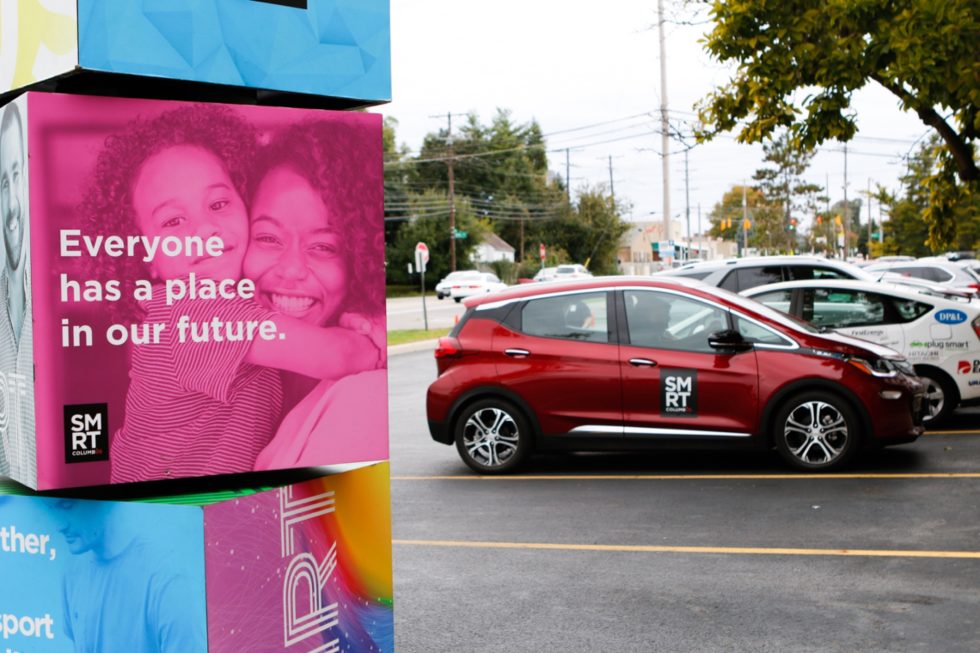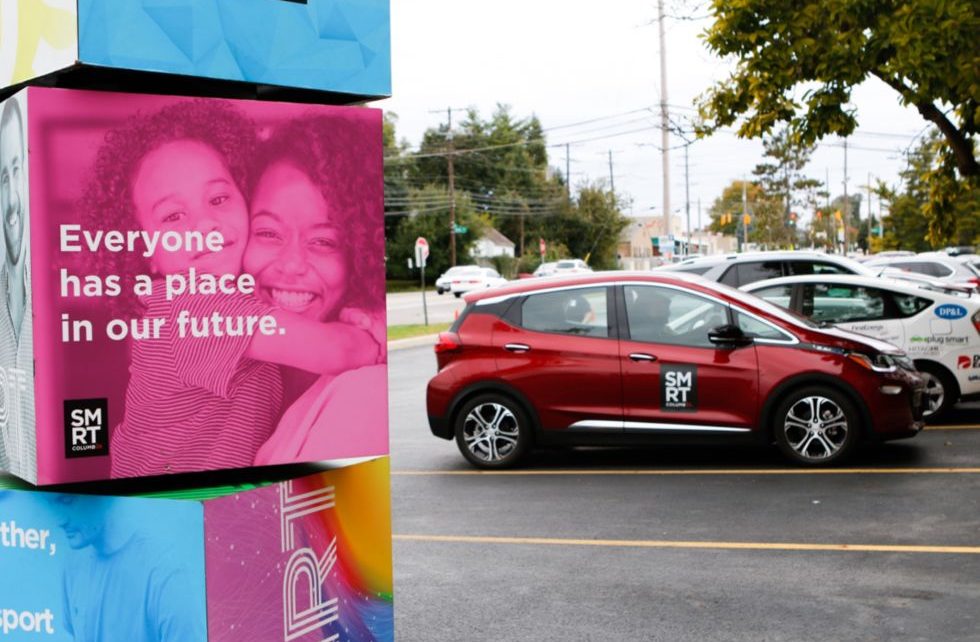-

Part of the Smart Columbus initiative is increasing the rate of electric vehicle adoption in the area. [credit: Smart Columbus ]
In 2016, Columbus, Ohio, beat out 77 other small and midsize US cities for a pot of $50 million that was meant to reshape its future. The Department of Transportation’s Smart City Challenge was the first competition of its kind, conceived as a down payment to jump-start one city’s adaptation to the new technologies that were suddenly everywhere. Ride-hail companies like Uber and Lyft were ascendant, car-sharing companies like Car2Go were raising their national profile, and autonomous vehicles seemed to be right around the corner.
“Our proposed approach is revolutionary,” the city wrote in its winning grant proposal, which pledged to focus on projects to help the city’s most underserved neighborhoods. It laid out plans to experiment with Wi-Fi-enabled kiosks to help residents plan trips, apps to pay bus and ride-hail fares and find parking spots, autonomous shuttles, and sensor-connected trucks.





